Turkey-backed Syrian rebels kill Kurdish politician, execute prisoners
Havrin Khalaf's armored SUV was likely targeted by Ahrar al-Sharqiya fighters
Syrian rebel factions leading the Turkish ground incursion into northeastern Syria killed a leading female Kurdish activist and politician and filmed themselves executing at least two prisoners.
On Saturday, October 12, Ahrar al-Sharqiya set up a checkpoint on the M4 highway in Tal Abyad and fired at vehicles full of civilians, including an armored SUV carrying women’s rights activist and secretary-general of the Future Syria party, Havrin Khalaf.
An open-source analyst who goes by the handle obretix identified the location as a stretch of motorway in Raqqa governorate between Ayn Issa and Al Hasakah, south of Tal Abyad and northeast of Raqqa city.
Graphic photos and a video that later circulated on social media purported to show Khalaf’s vehicle and her dead body, and the Syrian Democratic Council confirmed she had been killed. The SDC, part of the autonomous administration in northeast Syria, blamed the attack on Turkey, which supports Ahrar al-Sharqiya.
Khalaf’s driver, identified by sources as Farhad Ahmed, was also killed.
Information provided to The Defense Post supported the claim that Khalaf’s armored vehicle was targeted with heavy gunfire.
In a separate incident near Tal Abyad, Ahrar al-Sharqiya rebels captured what they said were Kurdish fighters, and later posted a video of three men – one wearing military fatigues and two in civilian clothing – who are shown kneeling with their hands behind their backs. A second gruesome video appears to show multiple rebels shooting one of the men, who lies on the ground beside the motorway with his hands apparently bound behind him. At the end of the video the rebels walk back towards the first man before the footage cuts off.
Ahrar al-Sharqiya later posted a photo of the two men in civilian attire but the man in military uniform inexplicably does not appear.
The Defense Post was not able to confirm the authenticity of the videos – which were first posted on the rebel group’s social media accounts – nor the identities of the captives or whether they were SDF fighters or civilians. In all the videos the fighters shout insults at their targets.
Altogether nine people were said to be executed by Ahrar al-Sharqiya on Saturday.
Kurdish activists were quick to condemn the executions, the first caught on video since Turkey’s ground invasion of Syria, dubbed Operation Peace Spring, began on October 9.
The torture and execution of civilians or prisoners of war in conflict is a war crime under international law.
“Ahrar al-Sharqiya’s executions of two prisoners and Kurdish politician and women’s rights activist Havrin Khalaf should serve as a wake-up call to those dismissing or downplaying the significant threat to civilians posed by the Turkish incursion into NE Syria,” said Genevieve Zingg, a Legal Fellow at the Syria Justice and Accountability Centre.
“The clear willingness of Turkish-backed factions to commit war crimes in violation of international law leaves civilians at extreme risk and highlights the profound ramifications of the Trump administration’s decision to abandon its Kurdish allies,” she said.
Ahrar al-Sharqiya have since pulled back from the M4 highway and the general command issued a decree telling its fighters not to film on the battlefield.
 Turkish forces are targeting Syrian Democratic Forces positions in the area of northeastern Syria Kurds call Rojava, meaning West, with a bevy of Syrian rebel factions, including jihadist groups, under the banner of the Syrian National Army.
Turkish forces are targeting Syrian Democratic Forces positions in the area of northeastern Syria Kurds call Rojava, meaning West, with a bevy of Syrian rebel factions, including jihadist groups, under the banner of the Syrian National Army.
The rebels previously fought against President Bashar al-Assad’s regime in the civil war that began in 2011 and the killings highlight fears that the incursion will bring sectarian violence and ethnic cleansing areas of northern Syria with a significant Kurdish population.
The invasion of Efrin led to mass civilian displacement and United Nations accusations of possible war crimes, including looting, hostage-taking and torture, by Turkey-backed Islamist Syrian rebels.
Ankara says Operation Peace Spring’s aim is to rid the area of “terrorists” and establish a buffer zone along the border where some two million Syrian refugees will be resettled from Turkey.
The Kurdish Red Crescent said Saturday that 35 civilians have been killed and 100 others injured since October 9. Accurate figures for casualties among the SDF and Turkish forces, including the rebels, were not readily available, although SDF spokesperson Redur Xelil said that 45 SDF fighters had been killed. All sides have an incentive to downplay their own losses and exaggerate enemy casualties.
There are also accusations on all sides of forces targeting civilians: pro-Turkish groups have accused the SDF of firing into southern Turkey, killing a number of civilians including a young girl.
At least 130,000 people have been displaced since the incursion began, with many fleeing east to Tal Tamer in western Hasakah governorate. The United Nations said Sunday that the the water supply throughout Hasakah was deteriorating and nearly half a million people were affected. It also warned that up to 400,000 people could require humanitarian assistance if the fighting continues.

The Syria-based monitor Rojava Information Center said that most of the fighting on Saturday was in the border towns of Tel Abyad and Serekaniye, also known as Ras al-Ayn. Clashes were reported in villages around Derik, and in the Deir Ezzor countryside. Turkey claimed fighters had captured various small towns and villages throughout the northeast but the reports were often disputed and the situation remained fluid.
Turkey’s long-planned assault on the U.S.-backed SDF, which it brands terrorists, came after President Donald Trump announced he was pulling back U.S. troops, despite growing international concern over regional stability and the security of ISIS prisoners.
The White House and Department of Defense maintain they oppose Turkey’s incursion into northeast Syria.
The multi-ethnic SDF was the main U.S. partner on the ground in the fight against ISIS in Syria, but Ankara considers the predominantly-Kurdish Syrian People’s Protection Units (YPG), the backbone of the force, to be a terrorist organization inextricably linked to the Kurdistan Workers Party (PKK), which has waged an insurgency inside Turkey since 1984.
In a press conference on Saturday, Xelil said the SDF’s allies had betrayed them and that the force would no longer prioritize the security of ISIS fighters in some 20 prisons across the region. A video circulating on social media earlier in the day appeared to show guards trying to keep order at a prison holding ISIS suspects. On Friday the SDF said five prisoners escaped a detention center near Qamishli and ISIS said it was behind a car bomb in the area that killed four civilians and injured nine others.
Also on Friday, female ISIS adherents in al-Hol camp attacked Kurdish internal security forces in an apparent attempt to escape. ISIS leader Abu Bakr al-Baghdadi had called on ISIS supporters to free female ISIS members and family members who live among 70,000 people in al-Hol.
On Sunday, the autonomous administration and witnesses at a camp for IDPs in Ain Issa said a number of ISIS families had escaped a secure section of the camp after a Turkish bombing in the area.

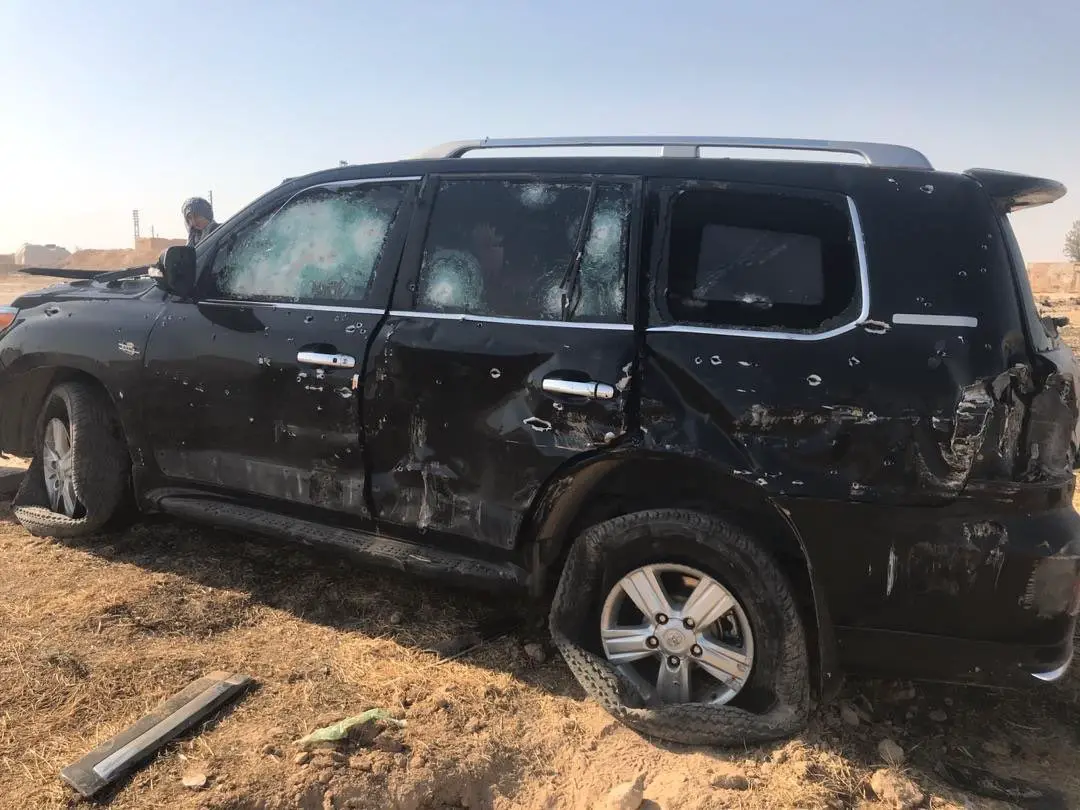

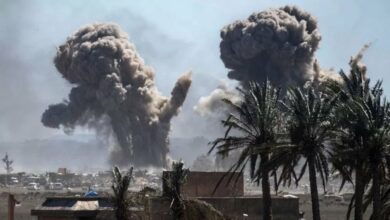
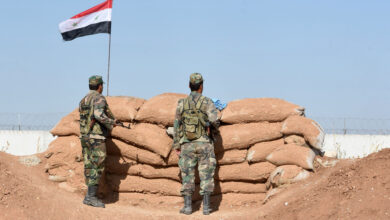
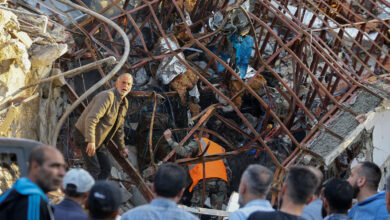

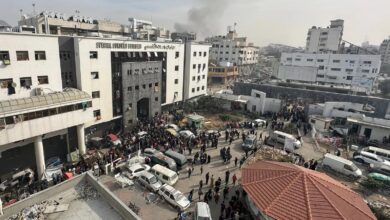
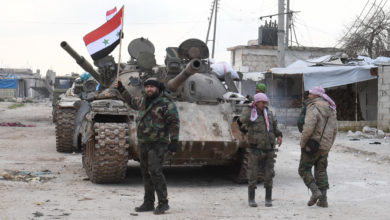

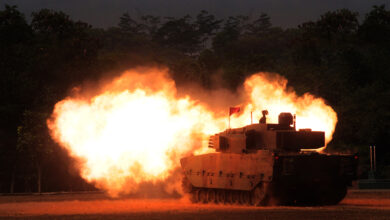

4 Comments